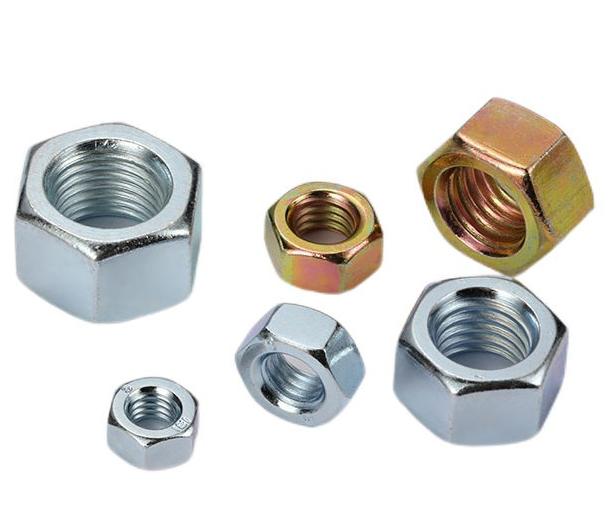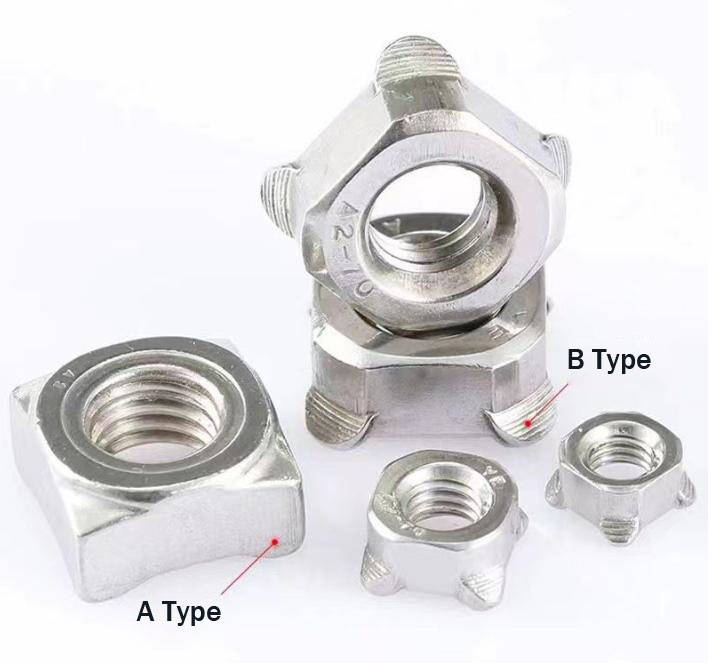A Comprehensive Guide to Hex Nuts and Square Nuts: Which One to Choose
When it comes to hardware fasteners, nuts are essential components that hold structures and machinery together, ensuring stability and integrity. Among the myriad of nuts available, two commonly encountered options are hex nuts and square nuts. While both serve the purpose of securing fasteners, they possess distinct characteristics suitable for different applications.
Hex Nuts:
Hex nuts, characterized by their six-sided shape resembling a hexagon, are ubiquitous in construction, automotive, and industrial settings. These custom hex nuts come in various sizes and materials, typically metal like steel or brass, and feature internal threads to mate with external threads on bolts or screws. Hex nuts are versatile and find applications in assembling components, providing a stable and reliable connection crucial in diverse industries.

Advantages of Hex Nuts:
Versatility: Hex nuts are compatible with a wide variety of fasteners, making them suitable for diverse applications.
Secure Fastening: The six-sided design provides multiple contact points, ensuring a secure and tight connection.
Torque Distribution: Hexagonal shape allows for even distribution of torque during installation, reducing the risk of damage or stripping.
Ease of Use: Hex nuts can be easily tightened or loosened using standard wrenches or socket sets, making them convenient for assembly and maintenance tasks.
Common Availability: Hex nuts are widely accessible in hardware stores, making procurement easier compared to specialized nuts.
Limitations of Hex Nuts:
Limited Access: Hex nuts may be challenging to install or remove in tight spaces due to their design.
Angular Misalignment: Hexagonal shape may restrict movement or adjustment in situations requiring angular misalignment.
Surface Damage: Improper wrenching or excessive force can lead to surface damage, affecting nut integrity.
Corrosion Susceptibility: Depending on material and finish, hex nuts may be prone to corrosion, especially in harsh environments.
Square Nuts:
Square nuts stand out with their four equal sides and right angles, finding specific uses in woodworking, furniture assembly, and applications where stability and anti-rotation features are vital. Similar to hex nuts, square nuts are made of metal, commonly stainless steel or zinc-plated steel, and feature internal threads matching external threads on bolts or screws. They offer a secure grip and resistance to loosening due to their unique shape.

Advantages of Square Nuts:
Anti-Rotation Feature: Square shape prevents rotation when tightened, providing added stability to the connection.
Secure Fastening: Square nuts offer a firm grip and resist loosening due to vibration or torque.
Easy Alignment: Flat sides facilitate alignment during installation, making positioning and securing easier.
Enhanced Wrenching Surface: Larger surface area allows for better wrenching, reducing the risk of surface damage or stripping.
Aesthetic Appeal: Square nuts provide a unique visual element and are preferred in applications where appearance matters.
Limitations of Square Nuts:
Limited Availability: Square nuts may not be as widely available as hex nuts, making procurement slightly less convenient.
Tool Requirements: Specialized tools like square socket wrenches or pliers may be needed for installation and removal.
Compatibility: Square nuts may not be compatible with certain fasteners, requiring specific bolts or screws with matching square heads.
Accessibility Challenges: Similar to hex nuts, square shape may hinder installation or removal in tight spaces.
Conclusion:
Choosing between hex nuts and square nuts depends on project-specific requirements, including size, compatibility, strength, accessibility, and cost considerations. Hex nuts offer versatility and common availability, while square nuts provide anti-rotation features and enhanced stability. Understanding the differences between these two nut types allows for informed decisions, ensuring secure and reliable fastening solutions tailored to specific applications.
- Art
- Causes
- Crafts
- Dance
- Drinks
- Film
- Fitness
- Food
- Jogos
- Gardening
- Health
- Início
- Literature
- Music
- Networking
- Outro
- Party
- Religion
- Shopping
- Sports
- Theater
- Wellness


